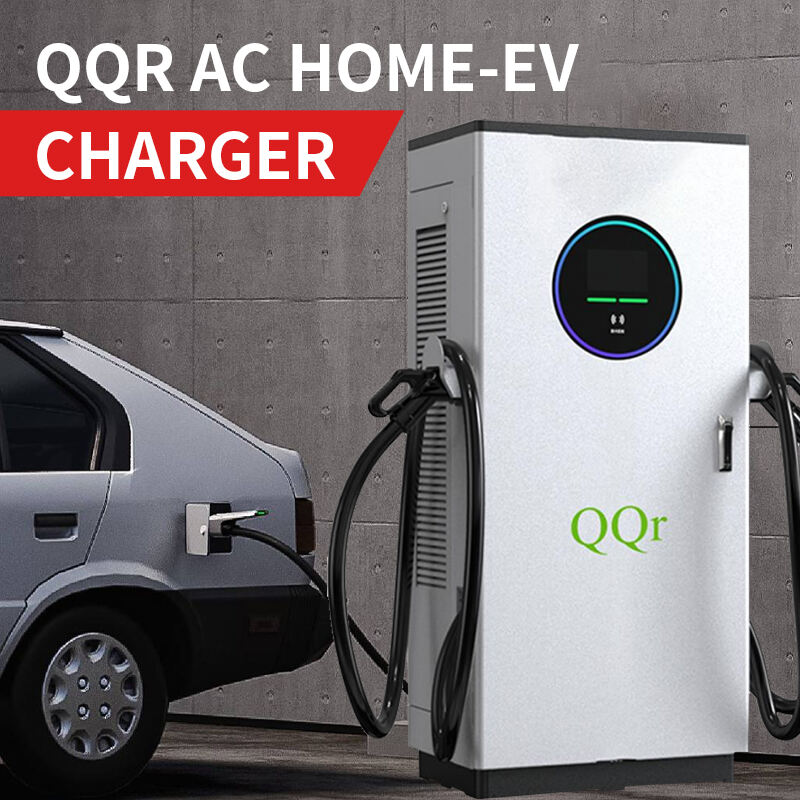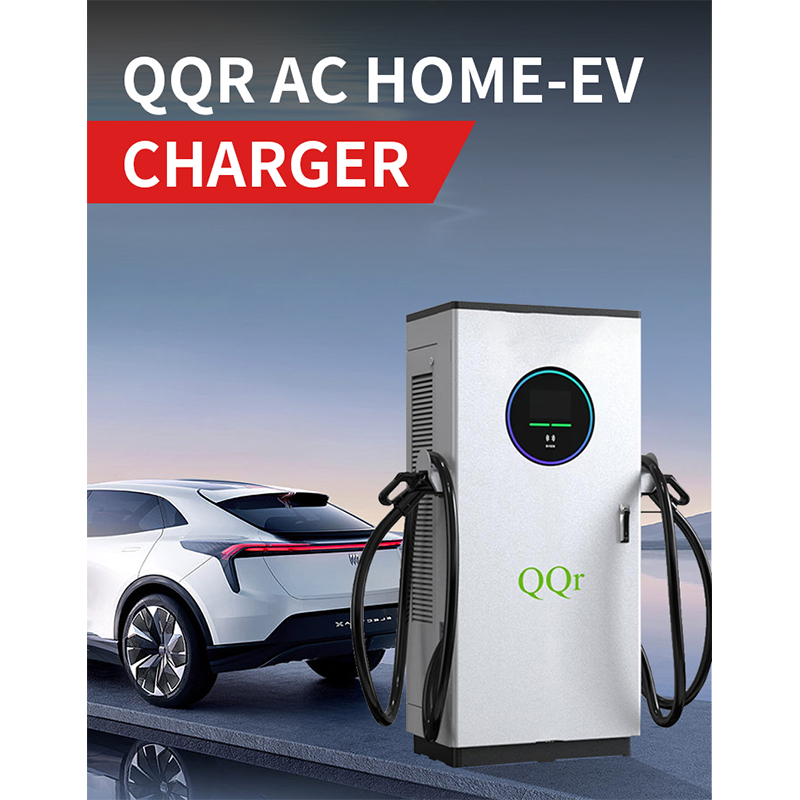Integrating Smart Features into AC EV Chargers for Home Use
Understanding Smart Features for Home EV Chargers
Smart features in home EV chargers represent a leap in technological advancement, focusing on connectivity, automated scheduling, and remote monitoring. These features enable the charger to communicate with other devices and the power grid, allowing for data extraction and optimization of charging rates. This intelligence allows the charger to adjust energy distribution based on grid capacity and vehicle needs, ensuring efficient and effective energy usage at home.
The importance of smart features for home EV chargers cannot be overstated. They play a crucial role in efficient energy usage by minimizing unnecessary energy consumption and thus, reducing costs. Moreover, they offer convenience to users through features like remote monitoring, allowing users to manage charging sessions even when away from home. These smart features also support grid stability by managing charging loads, preventing grid overload, and allowing for better integration of renewable energy sources. This makes smart chargers not only a convenient choice for modern homeowners but also a necessity for sustainable energy management in an increasingly electrified world.
Key Benefits of Integrating Smart Features into EV Chargers
Integrating smart features into EV chargers offers significant cost savings through intelligent charging strategies. By optimizing charging times to coincide with off-peak electricity rates, homeowners can substantially reduce their electricity bills. Many smart chargers offer the capability to learn user patterns, thereby ensuring that charging occurs when energy prices are at their lowest—an essential feature for cost-conscientious EV owners.
The use of mobile app controls significantly enhances the convenience of smart EV chargers. Users can easily manage their home EV charger from anywhere, at any time, through a dedicated app. This technology allows for remote monitoring, alert notifications, and the adjustment of charging schedules, thereby fitting seamlessly into the busy lives of modern users. Furthermore, mobile connectivity ensures drivers can maintain vehicle readiness with minimal hassle.
Smart chargers also provide enhanced energy management capabilities within the home. With real-time tracking and integration into home energy management systems, these chargers can boost efficiency significantly. This integration supports household energy distribution, ensuring that the energy usage is balanced and optimized throughout the day. By managing energy flow effectively, homeowners not only contribute to their environmental goals but also participate in broader energy conservation efforts.
Innovative Technologies Enhancing Home EV Chargers
Dynamic load management is a crucial technology that optimizes energy distribution among household appliances and electric vehicle chargers. By preventing electrical overloads, it not only enhances the efficiency of energy consumption but also ensures the safety of the home’s electrical systems. For instance, in a home equipped with multiple devices running simultaneously, dynamic load management can allocate power intelligently, adjusting as needed to prevent circuit breaks and maintain smooth operation.
Integrating renewable energy sources such as solar panels into home EV chargers offers a substantial reduction in carbon footprints. By harnessing solar energy for charging electric vehicles, homeowners not only minimize their reliance on fossil fuels but also potentially lower their electricity bills. This integration can be particularly beneficial in sunny regions, making solar-powered EV charging a sustainable choice for environmentally conscious homeowners.
Real-time usage monitoring is another innovative feature that provides transparency in energy consumption and enables users to adjust charging patterns. This technology allows homeowners to track how much power is being used in real time, offering insights into potential savings by shifting consumption to off-peak times. By enabling users to monitor and manage their EV charging processes, real-time usage monitoring enhances both the cost-effectiveness and efficiency of home energy management systems.
Product Review: GTD_N_120 120kW DC Charger
The GTD_N_120 120kW DC Charger stands out for its powerful features and robust specifications, making it a suitable choice for various electric vehicle (EV) models. Notably, the charger offers a continuous power output of 120kW, ensuring rapid charging for users. It is designed to accommodate different input voltages and frequencies, which extends its compatibility to a broad array of EVs. Furthermore, the dual-gun capability allows for simultaneous charging of multiple vehicles, maximizing both time and resource efficiency.
In terms of usability for home settings, the GTD_N_120 can be installed floor-standing, which suits residential environments where wall mounting might not be feasible. The user interface is notably intuitive, featuring a 7-inch LCD color touchscreen and LED indicators that streamline the charging process. Additionally, users can operate the charger remotely through a mobile app, enabling easy control and monitoring directly from their smartphones. These features contribute significantly to a seamless and user-friendly experience.
The advantages of using the GTD_N_120 for home charging are considerable. Its high energy efficiency, pegged at up to 95%, ensures minimized wastage and consistent power delivery, making it an eco-friendly choice. Moreover, the charger's intelligent features—such as remote diagnostics and adaptive charging plans—enhance its convenience and reliability, offering users an advanced solution for their EV charging needs.

Product Review: Efficient 120kW GTD_N_120 DC Charger
The Efficient 120kW GTD_N_120 DC Charger stands out with its impressive combination of performance and user-friendly design. This charger boasts a remarkable 95% system efficiency, ensuring minimal energy wastage and delivering consistent power levels for rapid charging. Users benefit from an advanced 7-inch LCD touch screen and intuitive LED indicators, providing easy navigation and control of the charging process. Furthermore, the charger's intelligent software and remote management through the D5 platform enhance the overall charging experience by offering real-time diagnostics and updates.
Compatibility is a significant strength of the GTD_N_120, as it caters to a wide range of electric vehicles with its versatile voltage and current adjustments. This flexibility ensures efficient and reliable charging regardless of the EV model. The double-gun configuration adds to its adaptability, allowing multiple vehicles to charge simultaneously, making it a perfect fit for both residential and commercial settings. The use of a mobile app control and swipe card activation offers seamless integration with existing technological systems.
Beyond its technical prowess, the GTD_N_120 also provides notable cost and environmental advantages. By reducing standby consumption and operating costs, users can achieve significant long-term savings compared to traditional EV chargers. Additionally, its high efficiency translates into reduced emissions, promoting a sustainable energy solution in line with environmental goals. Thus, the GTD_N_120 is not only a smart choice for modern EV charging needs but also an environmentally conscious investment.

Comparing Home EV Chargers: Smart vs. Traditional
When comparing smart EV chargers and traditional chargers, several key differences can affect your decision. Smart chargers stand out due to their enhanced performance and efficiency. These chargers feature capabilities such as remote monitoring, automated scheduling, and power optimization, allowing them to adapt charging based on grid demand. In contrast, traditional chargers offer basic plug-and-charge functionality without these advanced features. Studies indicate that smart chargers can help reduce energy costs by enabling users to capitalize on off-peak charging times, offering a clear financial incentive.
User requirements should play a central role in determining the suitable charger type for individuals. If your lifestyle involves complex energy needs or multiple electric vehicles (EVs) at home, a smart EV charger might be the better option. It provides the flexibility required for dynamic energy management and simplifies vehicle tracking. Alternatively, if your charging needs are straightforward and budget is a main concern, traditional chargers could suffice.
In evaluating the long-term benefits, smart chargers offer distinct advantages by future-proofing against evolving energy demands. These chargers are designed with compatibility for upcoming technological advancements, such as integration with smart home systems and potential bi-directional charging capabilities. This adaptability ensures that users can seamlessly transition as the energy landscape evolves, making smart chargers a wise investment for those anticipating future requirements from their home EV charging infrastructure.
For more information on the latest smart chargers, consider exploring offerings from brands like ZENCAR, which provide a range of options tailored to different user needs and charging environments.
Future Trends in Home EV Charging Technologies
Emerging technologies in smart charging, such as bidirectional charging and advancements in battery technology, are poised to revolutionize the home EV charging landscape. Bidirectional charging allows electric vehicles not only to draw power but also to return unused electricity back to the grid or to supply it to home appliances. This technology is complemented by advancements in battery technology, which aim to increase energy density and reduce charging times, enhancing both convenience and efficiency for users.
The integration of EV charging with smart homes plays a significant role in the seamless and efficient charging of electric vehicles. Smart homes equipped with automation and energy management systems can optimize charging times based on peak and off-peak energy rates. This also includes the ability to schedule and remotely control EV charging via smartphone apps, further integrating electric vehicles into the broader smart energy ecosystem of the home.
Sustainability goals are inherently aligned with smart EV charging technologies, as they contribute to reduced emissions and efficient energy consumption. By optimizing when and how vehicles are charged, these systems help meet global targets for urban air quality and carbon emissions. Such technologies not only underline the environmental benefits of transitioning to electric vehicles but also reinforce the commitment to a cleaner, more sustainable future.

 EN
EN
 AR
AR
 BG
BG
 HR
HR
 CS
CS
 DA
DA
 NL
NL
 FI
FI
 FR
FR
 DE
DE
 IT
IT
 PL
PL
 PT
PT
 RO
RO
 RU
RU
 ES
ES
 SV
SV
 TL
TL
 IW
IW
 ID
ID
 LT
LT
 SR
SR
 SK
SK
 SL
SL
 VI
VI
 ET
ET
 HU
HU
 MT
MT
 TH
TH
 TR
TR
 AF
AF
 MS
MS
 GA
GA
 CY
CY
 HY
HY
 AZ
AZ
 KA
KA
 LA
LA
 KK
KK
 UZ
UZ
